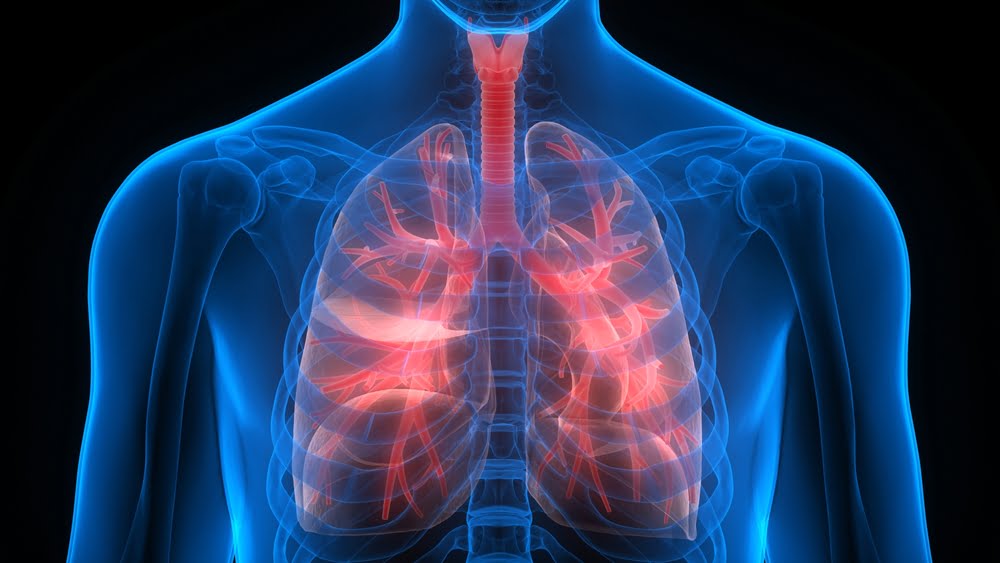By OmegaQuant
The connection between omega-3 fatty acids and heart health has long been established — but emerging science now shows that these essential fats may also play a vital role in lung protection. A new study published in the American Journal of Epidemiology provides compelling evidence that higher blood levels of DHA, one of the most important omega-3s, could reduce the risk of lung scarring and respiratory disease, including conditions that share similarities with those caused by severe viral infections like COVID-19.
How Omega-3s May Protect Against Interstitial Lung Disease (ILD)
Interstitial lung disease (ILD) refers to a group of disorders that cause chronic inflammation and scarring of lung tissue, making it difficult for oxygen to pass into the bloodstream. Over time, ILD can lead to serious breathing problems, hospitalizations, and even death.
In the new study, OmegaQuant’s Dr. Bill Harris and his research team examined data from over 10,000 participants across three major population studies — the Multi-Ethnic Study of Atherosclerosis (MESA), the Framingham Heart Study (FHS), and the AGES-Reykjavik Study. They measured circulating DHA and other fatty acids to evaluate their association with ILD-related hospitalizations and deaths over a 12-year period.
The Findings
-
Participants with higher DHA blood levels had lower rates of hospitalization and death from ILD.
-
Higher DHA was also linked with fewer interstitial abnormalities on CT scans — a sign of healthier lung tissue.
-
These associations remained significant even after adjusting for age, smoking, and other health factors.
“The severity of inflammatory lung disease was inversely related to blood omega-3 levels,” said Dr. Harris. “Those with lower DHA had higher risks for ILD and related deaths. This suggests that maintaining higher circulating omega-3s offers meaningful protection — an insight especially relevant in the COVID-19 era.”
The Link Between Omega-3s and Asthma
Another study published in Nutrients reinforced the relationship between omega-3 status and lung function, particularly in individuals with asthma.
In this study, researchers compared the Omega-3 Index — a measure of EPA and DHA in red blood cells — among 392 adults, 255 of whom had asthma. They found that:
-
People with higher Omega-3 Index levels (≥8%) had better asthma control and required lower doses of corticosteroid medication.
-
Those with uncontrolled asthma had significantly lower omega-3 levels.
These findings suggest that maintaining an optimal Omega-3 Index could serve as an adjunct therapy for asthma, helping reduce inflammation and reliance on medication.
“Our results indicate that achieving an Omega-3 Index of 8% or higher could be a beneficial target for people with asthma,” the authors concluded.
Omega-3s and the “Cytokine Storm” in Viral Infections
A third line of research has focused on the ability of omega-3s to help control an overactive immune response known as a cytokine storm — a major cause of severe complications in viral infections, including COVID-19.
In a Frontiers in Physiology review, scientists described how EPA and DHA can help regulate immune signaling molecules (cytokines) and prevent the immune system from attacking the body’s own tissues. The authors concluded that omega-3 supplementation may serve as both a preventive and supportive therapy for managing hyperinflammatory responses.
The “Goldilocks” Immune Effect
Omega-3s appear to help the immune system respond with balance — not too much and not too little. They achieve this through the production of specialized pro-resolving mediators (SPMs), which are metabolites derived from EPA and DHA that actively turn off inflammation and promote healing.
Without enough omega-3s, the body produces fewer SPMs, leading to prolonged inflammation and slower recovery after infection.
A 2018 clinical study by Norris and Skulas-Ray found that individuals taking high-dose omega-3s (900–3400 mg/day) produced significantly higher levels of SPMs following an inflammatory challenge, compared with controls.
Omega-3s and Acute Respiratory Distress Syndrome (ARDS)
Acute Respiratory Distress Syndrome (ARDS) is one of the most severe complications of COVID-19, often requiring ventilator support. Research shows that omega-3s may help improve oxygen exchange and shorten ICU stays.
A meta-analysis of 12 clinical trials found that patients with ARDS who received omega-3-enriched nutrition experienced:
-
Improved oxygenation (PaO₂/FiO₂ ratio)
-
Reduced ventilation duration
-
Shorter ICU stays
Although results vary between studies, the data overall supports omega-3s as a reasonable adjunct therapy in managing severe respiratory illness.
Omega-3s for Immune Health: Official Guidance
In response to the pandemic, leading nutrition and immunology experts recommended several nutrients to help support the immune system, including omega-3s. Their key recommendations include:
-
Supplementing with vitamins A, C, D, E, B-complex, and minerals like zinc, selenium, and magnesium.
-
Consuming at least 250 mg of EPA and DHA daily, or enough to maintain an Omega-3 Index between 8–12%.
-
Combining omega-3s with a balanced diet rich in fruits, vegetables, and lean proteins to enhance immune resilience.
The Takeaway: Omega-3s as Essential Defenders for the Lungs
From reducing the risk of lung scarring and asthma symptoms to potentially calming cytokine storms during viral infections, omega-3 fatty acids — particularly EPA and DHA — play a crucial role in maintaining lung and immune health.
By supporting balanced inflammation and aiding tissue repair, omega-3s may serve as a powerful nutritional defense system for the respiratory tract — one that’s increasingly relevant in today’s world.
For anyone concerned about inflammation or lung health, regularly checking your Omega-3 Index is one of the simplest ways to ensure your body has the resources it needs to stay resilient.




